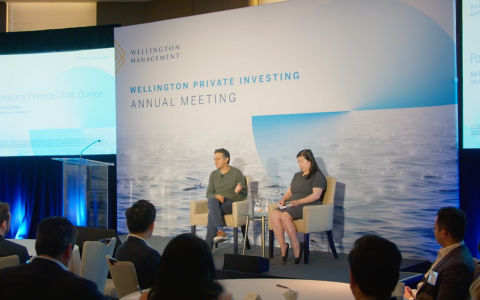Why venture capital matters for impact investors
The Global Impact Investing Network (GIIN) estimates that the impact investing universe is developing rapidly, surpassing over US$1.trillion in assets under management globally in 2022.2 Notably, in its most recent annual survey, 55% of respondents had an allocation to venture-stage companies, demonstrating that impact investors are deploying capital in this segment of the market.3
Many venture-stage companies are innovative, fast growing and on a mission to change the entire ecosystem in which they operate. Combining these characteristics with products and services aligned with making real-world positive social or environmental progress is an extremely attractive proposition for impact investors, particularly those looking to bring about widespread changes through their investments. The climate crisis represents a useful example here given that many venture-stage companies are developing new technologies that may play a key role in helping every sector of the economy transform by reducing energy consumption, increasing energy efficiency and making global energy supply more sustainable.
In addition, the next generation of entrepreneurs seeking venture capital may be more likely than the last to include sustainability considerations in their business models. In fact, entrepreneurs in their 20s and 30s are more likely than those in their 50s to view social impact as a personal motivation.4 A company’s positive impact is likely to become an increasingly important part of its mission and pitch to investors. Impact investors therefore need to develop the tools and skill sets to accurately assess these claims in order to allocate capital effectively to those companies making the biggest positive impact.



















